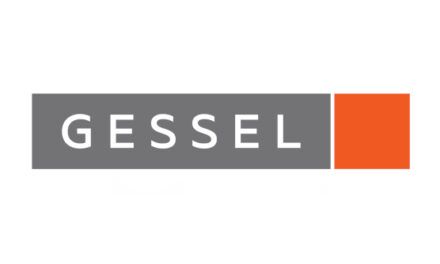

Despite the fact that the last three years have been full of unforeseen events, entrepreneurs and investors from abroad still consider Poland to be a safe and attractive country in terms of locating investment projects. Therefore, they do not give up their plans, seeing good chances for successful investments.
The pandemic and the war in Ukraine have severely affected many economies, which have clearly slowed down. In addition, they have destabilised international trade and production, supply chains for parts and components and raw materials, resulting in a strong trend towards a shift from globalisation to regionalisation, minimising possible further risks from these unexpected events. The turbulence in trade and production is also reflected in the e-commerce market, which is currently turning towards regionalisation.
Although the effects of the pandemic and the war have not been indifferent to the Polish economy, our country continues to attract the interest of investors from around the world. Above all thanks to its well-educated specialists, its central location and its sustainable and stable consumer market.
This position is also well reflected in strategic investment decisions. Poland is currently one of the region’s largest centres of attraction for greenfield investments, as well as an area of numerous transactions, mergers and acquisitions by foreign entities.
Polish opportunity for international investment
The new approach to the functioning of economies, like any significant and rapid change, certainly brings challenges, but it can have a positive impact on the Polish economy and the attraction of international capital.
Representatives of foreign investors unanimously emphasise that Poland has significantly contributed to the business development of their companies. They appreciate the qualified human resources that constitute the strength of rapid growth and technological progress.
The number of companies managed from Poland will grow in Europe. This trend is already visible and is likely to continue. According to economic analysts’ forecasts, Poland is likely to reach a level of economic development similar to Germany over the next decade.
Importantly, unlike in many other countries – our labour market is not concentrated around the two-three largest cities, and highly qualified employees can be found in every region of the country.
This is a truly unique opportunity for Poland, which investors have already recognised and are making intensive use of. A great advantage of our country as an investment destination is the construction of an efficient transport infrastructure connecting the main cities and allowing for better cooperation between companies and increased mobility of employees. This is why locations in the south-western part of the country are of such great interest to entrepreneurs.
New competitive advantages of Poles
It is also worth emphasising that, with the increase in wages and wealth of Poles, relatively low labour costs are becoming a thing of the past. Competitive advantages should therefore no longer be sought in low wages, but in the area of new technologies.
Private and public investment in technological innovation can unleash the enormous potential of Polish specialists. When Poland joined the EU, it had the highest unemployment rate of all member states and a surplus of workers. Today, the opposite is true – it has the lowest (joint equal with Czechia) unemployment in the EU. Demand for labour is growing, and young workers, due to demographic changes, are in short supply. In 1982, the number of Poles born was around 700,000. In 2012, it had fallen to 350,000. A 50% drop in just two decades.
Since very few children are being born in Poland (last year, there were just 305,000 births) and the prognoses are not optimistic, a certain opportunity that can influence the economic development of our country is the growing number of workers from Ukraine. This is not only conducive to an increase in consumption, but above all fills the acute shortage of staff in many industries, including catering, tourism, transport and others.
According to many, Poland, especially now that there is a war going on behind our eastern border, should be promoted as a country with very high investment potential.
It is clear that our country’s location, close to a war zone, causes concern among potential foreign investors. However, this location could prove to be extremely beneficial precisely in the context of Ukraine’s future post-war reconstruction and the development of a network of various connections between all key European markets. Those who recognise this opportunity today and invest in Poland could be the biggest beneficiaries in the future.
What are international investors looking for?
What, in the context of direct investment, is most important for foreign investors considering involvement in Poland?
To answer the question posed in this way, we can mention:
- the resilience of the Polish economy to crises
- advantageous location
- developed infrastructure
- availability of highly qualified labour force
- the security guarantees associated with Poland’s membership of NATO
- the economic opportunities offered by Poland’s EU membership and access to the single market
In order to take advantage of the post-pandemic new trend of regionalisation of economies and to attract investors to Poland, we need to lower market-entry costs, have a more predictable and stable legal and tax system, lower labour costs and invest in digitalisation and technological innovation.
To conclude with some figures: the number of foreign direct investments in Poland increased by 23% to 237 in 2022. However, the number of jobs generated by these investments fell to 18,400, which is 12% less than the investments announced in 2021.
Investors are reconfiguring global supply chains.
Poland may be one of the beneficiaries of this trend, not least because it combines its location in the centre of Europe with the cost attractiveness of investment. This is especially true for manufacturing sectors. In addition, the importance of investments undertaken by entities from Ukraine and Belarus is growing. Capital relocations from these countries had a major impact on the growth of investment projects in Poland in 2022.
Several other countries also stand out on the European investment map: foreign investment in Italy increased by 17% in 2022, Portugal by 24%, Romania by 86% and Turkey by 22%.
Europe’s three largest countries still attract half of foreign investment.
France, as the leader of the latest list, attracted 1,259 projects, a 3% year-on-year increase. The UK, still struggling with the effects of Brexit, boasts 929 projects, which translates into a 6% decline, and Germany, Europe’s largest economy but with high labour costs and strained supply chains, attracted 832 investments (down 1% y/y).
In terms of jobs, the situation is slightly different.
Last year’s investment in the UK accounted for 46,779 new jobs, in France, which has very high costs and complex labour laws, 38,102, and in Germany 33,548 new jobs.
The largest investments in terms of average number of jobs are attracted by Serbia and Spain, where one investment generates on average 334 and 326 jobs respectively.
Poland ranks sixth in this respect, equal with Italy. On average, one foreign investment in Poland means 148 new jobs.
Prospects for new foreign investment in Poland are optimistic.
According to global surveys, over the coming year very many capital groups are planning to develop or start operations in Europe. This is the result of investments planned and not realised in previous years, mainly due to the coronavirus pandemic. On the other hand, economic conditions are forcing corporations to reorganise and rationalise their operations and optimise costs.
However, it should be emphasised that one of the key factors negatively affecting investment in Europe, including Poland, is very high energy prices. Many companies have postponed their development plans due to the crisis in the energy market. Some have relocated production to countries where electricity is significantly cheaper.
Another threat to foreign investment in our country is high inflation and the lack of measures that could prevent a wage-price spiral. Inflation is one of the most serious factors that affect investment decisions. A high one reduces consumer demand and the propensity to save and invest.
Investment will drive economic growth
In 2023, we will see an increase of more than 3% in business investment. Direct investment will be the main factor in this.
In summary, we can therefore say that Poland, as the sixth-largest economy and fifth-most populous state in the EU, has a very good chance of attracting new foreign investment, technological progress and significant GDP growth.
However, this is still only an opportunity, and its realisation depends on taking wise and prudent action. Investors are not guided by sentiment or emotions, and base their decisions on accurate calculations, risk assessment, and evaluation of the stability and predictability of business conditions.

























